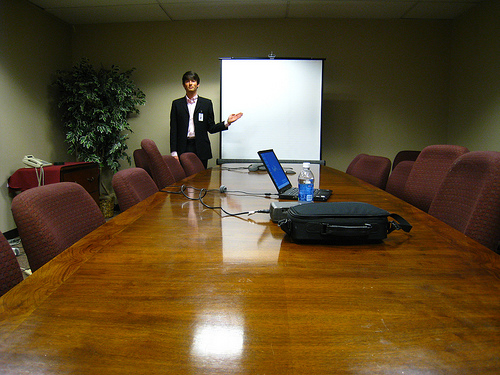Have you ever experienced someone telling you that you’ve done a good job? Or maybe they have even gone so far as to say you were talented or exceptional in a particular thing.
Then your immediate response was something like, “oh thank you, but it really wasn’t anything special.”
I know I’ve certainly responded that way at times.
In addition to maybe some false humility, I responded this way because I was unaware of my strengths.
Many of us are unaware of our strengths and what we do well.
This could be due to a variety of factors, but one factor I’m sure of is the influence of our culture’s focus on improving our weaknesses.
We have been told from a very young age to work on making our weaknesses better.
In elementary school through high school what gets circled or checked off on a test? The incorrect answers.
What happens when a child gets a low grade in one or more subjects? Parents pay for tutoring in that subject.
What do many employers focus on during performance reviews? Opportunities for growth (a.k.a. getting better at weaknesses).
I thought this was just the way it was – a necessary evil. You work on some weak area in order to bring it up to par with the areas where you’re doing well.
You’ll be on your way to a happy, healthy, “well-rounded” life.
Then I read Strengthsfinder 2.0 by Tom Rath.
Through the research done by the Gallup organization, Rath found that people who have the opportunity to focus on their strengths every day are six times more likely to enjoy their jobs and more than three times as likely to report they have an excellent quality of life in general.
That’s amazing, especially in light of our culture’s obsession with improving weaknesses.
Admittedly when I first took the Strengthsfinder 2.0 I really liked it and found it fascinating. However, I read my top five strengths, agreed that I’m generally good in those areas, and didn’t look at them again for a couple of years.
Now, I just recently printed out my top five strengths and taped them to the wall in my office where I will see them every day. When I’m faced with a decision about a career opportunity to pursue I check it against my strengths to make sure I would be honoring those areas.
My top five strengths are:
1. Learner – People who are especially talented in the Learner theme have a great desire to learn and want to continuously improve. In particular, the process of learning, rather than the outcome, excites them.
2. Context – People who are especially talented in the Context theme enjoy thinking about the past. They understand the present by researching its history.
3. Belief – People who are especially talented in the Belief theme have certain core values that are unchanging. Out of these values emerges a defined purpose for their life.
4. Responsibility – People who are especially talented in the Responsibility theme take psychological ownership of what they say they will do. They are committed to stable values such as honesty and loyalty.
5. Consistency – People who are especially talented in the Consistency theme are keenly aware of the need to treat people the same. They try to treat everyone in the world with consistency by setting up clear rules and adhering to them.
What about you? What are you strengths? Are you able to focus on your strengths every day in your work?
You can begin operating in your strengths in your work by taking these three steps:
1. Buy the Strengthsfinder 2.0 book, read it, and take the test.
2. Check your top five strengths against your current job. How do the responsibilities of your job compare to your strengths? Are you utilizing your best talents everyday?
3. Develop an action plan to maximize your strengths in your current job. Or find another opportunity that is more in alignment with your strengths.
The more you know about yourself and what you do well you will be able to make better informed decisions. Which will in turn provide you with more opportunities to be intentional about your life and career.



I’ve taken the Strengthsfinder!
I love this tool and actually referenced it as recently as last night while
talking with a client. My strengths are 1). Restorative 2). Individualization
3). Futuristic 4). Woo 5). Activator. I remember them by the acronym “RIFWA.” J I like your idea of posting these in an area that you see every day, and checking them against career opportunities you may have. Ironically, I have my clients do this, but have never done it myself!
A cool experience for me was learning that something I once viewed as a weakness, was actually a strength. This is my “woo” strength. Someone close to me once said, “Alana, you change your behavior all the time. You are like a chameleon. You act differently depending on who you are around.” I took it as a negative. For years, I believed it was a bad thing for me to be different depending on the people I was surrounded by. Then I took the Strengthsfinder and viewed this in an entirely new light. My “woo” allows me to relate to individuals from a variety of backgrounds. This strength, combined with “Individualization” allows me to see the needs/personalities of those around me and adjust my behavior/language in a way where I can make them feel comfortable. If I did not have this ability to read people and then adjust, I would not have been able to relate to these groups of people.
Creating an acronym is a great way to remember your strengths, Alana. I may have to borrow that idea. (Except my acronym is LCBRC…hmmm, doesn’t exactly roll off the tongue).
Yes, the WOO strengths is a fabulous strength to have. I think the ability to adjust your behavior and language based on who you are speaking with shows great self-awareness. Those who are able to do that effectively and in a genuine way are often the most socially adept people we encounter.
I’m so glad you were able to reframe your natural strength in a positive way.
Just did a workshop on the StrengthsFinder a few weeks ago in a leadership program I facilitate, great stuff! My strengths are Responsibility, Connectedness, Learner, Discipline, and Relator. A great follow up book is “Go Put Your Strengths to Work” by Marcus Buckingham. It will really help you mold your current work around your strengths and help guide you through removing weaknesses.
When I first took the assessment, I was a little disappointed. There were other strengths I wanted to have. I put the results away like you and didn’t look at them for a while. When I brought them back out and began brainstorming the workshop content, I was able to appreciate them more and see how they fit and many of my frustrations did not fit with them.
I haven’t read that book yet Nick, but I just added it to my reading list. Thanks for the recommendation.
I had the same experience with wanting to have other strengths than the ones I have. Strengths envy I suppose. But I have to remind myself that these are strengths and they are all good!
God made me in a particular way so I need to use what I was given and not try to be someone else.